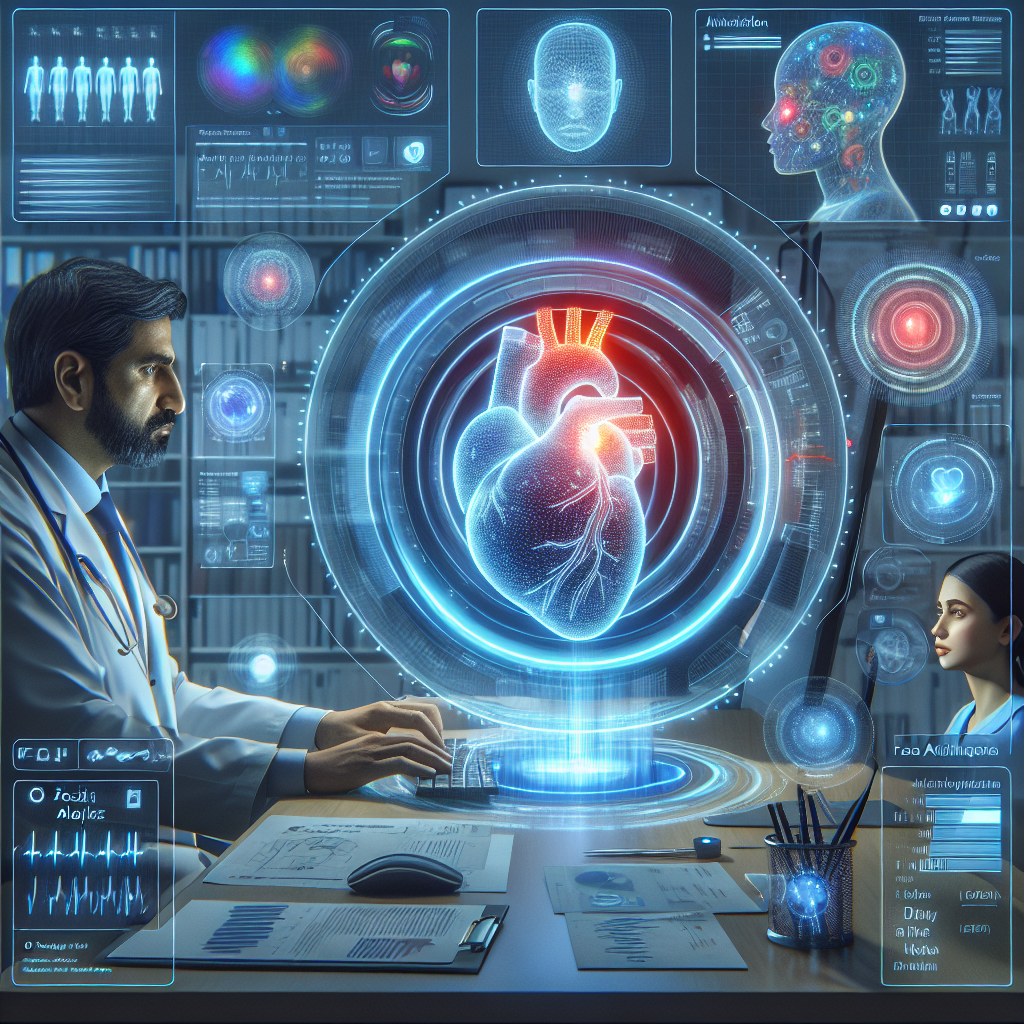Artificial Intelligence (AI) has revolutionized many industries, including healthcare. One of the most exciting applications of AI in the healthcare sector is personalized healthcare. By leveraging AI solutions, healthcare providers can tailor treatment plans and interventions to individual patients, leading to better outcomes and improved patient satisfaction.
Personalized healthcare, also known as precision medicine, takes into account individual variability in genes, environment, and lifestyle for each person. This approach allows healthcare providers to deliver targeted treatments that are most effective for each patient, minimizing side effects and optimizing results.
AI plays a crucial role in personalized healthcare by analyzing large amounts of data to identify patterns and trends that can inform personalized treatment plans. Here are some ways in which AI is being used to enhance personalized healthcare:
1. Predictive analytics: AI algorithms can analyze patient data, such as electronic health records, genetic information, and lifestyle factors, to predict a patient’s risk of developing certain diseases or conditions. This allows healthcare providers to intervene early and prevent potential health issues before they arise.
2. Treatment optimization: AI can analyze patient data to identify the most effective treatment options for each individual. By considering factors such as genetics, drug interactions, and lifestyle, AI can recommend personalized treatment plans that are tailored to the patient’s unique needs.
3. Remote monitoring: AI-powered devices, such as wearable sensors and mobile apps, can monitor patient health in real time and provide personalized feedback and recommendations. This allows healthcare providers to track patients’ progress remotely and intervene when necessary.
4. Drug discovery: AI can analyze vast amounts of data to identify potential drug candidates and predict how they will interact with specific patient populations. This can lead to the development of personalized medications that are more effective and have fewer side effects.
5. Virtual assistants: AI-powered virtual assistants, such as chatbots and voice-activated devices, can provide personalized health information and support to patients. These virtual assistants can answer questions, provide reminders, and offer guidance on managing chronic conditions.
Overall, AI solutions are revolutionizing personalized healthcare by enabling healthcare providers to deliver more targeted and effective treatments to individual patients. By harnessing the power of AI, healthcare providers can improve patient outcomes, reduce healthcare costs, and enhance the overall quality of care.
Frequently Asked Questions (FAQs):
Q: How is AI being used in personalized healthcare?
A: AI is being used in personalized healthcare to analyze patient data, predict disease risk, optimize treatment plans, monitor patient health remotely, and discover new drugs.
Q: What are the benefits of personalized healthcare?
A: Personalized healthcare allows healthcare providers to deliver targeted treatments that are most effective for each patient, leading to better outcomes, reduced side effects, and improved patient satisfaction.
Q: Are there any ethical concerns with AI in healthcare?
A: There are ethical concerns surrounding the use of AI in healthcare, such as patient privacy, data security, bias in algorithms, and the potential for AI to replace human healthcare providers. It is important for healthcare providers to address these concerns and ensure that AI is used responsibly and ethically.
Q: How can patients benefit from personalized healthcare?
A: Patients can benefit from personalized healthcare by receiving tailored treatment plans that are most effective for their individual needs, leading to better outcomes, improved quality of life, and reduced healthcare costs.
Q: What is the future of AI in personalized healthcare?
A: The future of AI in personalized healthcare is promising, with continued advancements in AI technology, increased adoption of personalized medicine practices, and improved patient outcomes. As AI continues to evolve, personalized healthcare will become more accessible and effective for patients worldwide.

